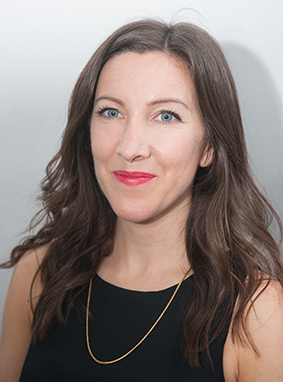Automation for the people
While a number of predictions were made for next year’s trends, there was one recurring theme among them: an expectation of researcher’s lives being made easier through automation.
“I hope that automation is a trend for us all in 2015. In all aspects of what we do, I would imagine there is a way we can lighten the load somewhat, that we can leverage available resources, or technology to do something to make our lives easier. This is certainly true for us in marketing research. I’ve heard too often that many of our clients spend valuable time doing very routine tasks. Let’s take back some of our workday, and become more productive.” Frederic Charles Petit, founder and chief executive, Toluna
“Automation of the research process. It is something that has been discussed for the last year or two but we think it is just beginning to get serous traction.” Stephen Phillips, CEO, Zappistore
“Smart technology (technology that reduces effort and intrusiveness without compromising accuracy but which can lead to more insights). So this could be applied to interviewing or analysis or presentation/output or engagement.” Virginia Monk, MD, Network Research
Coming together
Convergence, in a variety of forms, was also mentioned by a number of contributors.
“Convergence seems to be a big trend that is emerging in a number of industries, including our own. For our industry, the lines between research, consulting, data, content and branding continue to become ever more blurred – and I would expect that co-opetition — an environment where agencies will collaborate on some things, and compete on others — will continue, albeit at a faster pace than what we’ve observed this year.”Andrew Wiseman, MD, ICM
“[Next year’s biggest trend will be] the integration of information and insights from multiple data/research sources.” Steve August, chief innovation officer, Focus Vision
Tacit knowledge, customisation, agility and transparency
Other predictions for next year’s trends focused on researchers making use of their understanding of consumers; customers’ increasing expectations of customisation; improved agility in addressing complex research issues and the continuation of a need for ‘inherent goodness’ from brands.
“As an industry we underestimate the importance of our implicit understanding of consumers. We need to recognise the value of our tacit knowledge which will be increasingly important as we are called on to make sense of a proliferation of data sources.” Colin Strong, head of Industry, GfK
“[The biggest trend for 2015 will be] increased consumer expectations/media attention to customized and personalized outreach and programming.” Robert Passikoff, founder and president, Brand Keys
“Agility – find solutions for complex issues in any possible manner. It does not have to be perfect, as long as it is fast and cost effective, above all it has to agile, creative, innovative This will especially be the case for complex research, find those hard to reach respondents and interview them.” Wander Meijer, COO, MROps
“I think that we’ll continue with the post-recession trend of calling for transparency from our brands. Clear labelling and open & honest ingredient listings. As consumers, I think we’re looking from ‘inherent goodness’ from our brands and our expectations are only increasing. Brands must keep up with consumer opinion.”David Howlett, strategic planning director, MMR
Polling position
Given that 2015 is a general election year, Nigel Cover, vice president of Business Services Europe at MaritzCX, suggested that poor polling could be a trend for the coming year:
“Polling companies trying to double or triple guess the outcome of the UK general election – and getting it wrong. Our Scottish friends proved recently how vulnerable small samples are in predicting election results at the polls; especially when views are so polarised, fragmented and demographically variable.”
Research-live also specifically asked contributors for their thoughts on research in an election year. Here is some of what they said:
“Politicians and pollsters will take advantage of non-conscious methods now used by major marketers including Implicit Reaction Time (to measure voter conviction), Facial Coding and Biometrics to establish emotional response beyond what the public typically reports.”Elissa Moses, EVP, Ipsos Neuro & Behavioural Science Centre.
“With no more than five months to go until the General Election, the polling community believes this might be the hardest to call in a generation, despite the fact there is infinitely more polling evidence being produced than ever before. The rise of UKIP is, of course, a main reason for this, and represents a real wild card in the overall electoral environment.” Andrew Wiseman
“There is a danger that the data economy encourages us to operate as self-interested, atomised individuals. It will be interesting to see how this shapes our view on the relevance of the general election and our voting behaviours.” Colin Strong
Market matters
Research-live also asked contributors to comment on what markets the research industry would do well to keep an eye on in 2015. Martin Filz suggested that the old guard of the US and EU5 would be key as BRIC countries struggle to make the impact expected of them; Jem Fawcus, CEO of Firefish also felt that the US and UK would do well, as would emerging African economies; and Stephen Phillips joined them in picking out US and UK. Frederic Charles Petit higlighted Latam; Simon Lidington chose China, Korea and Brazil; and Wander Meijer picked out key countries across the regions: Poland, US, Singapore, S Korea, China, Ghana, Rwanda, Botswana, Chile and Colombia.
And finally…
Other various upcoming trends highlighted were as follows:
Jem Fawcus believes that 2015 will see “a re-emergence of a golden age of ‘qual’ and core qual techniques”, while founding partner and CEO of Big Sofa, Simon Lidington, suggests the biggest trend for the coming year will be “the inclusion of video questions in digital/online quantitative surveys”. Finally, Dan Hagen, chief strategy officer at Carat, believes that content marketing will continue to be a big trend over the next 12 months, “as media owners look to get funding for their content, advertisers work out what kind of content consumers want / will accept from them, and whether it saves money or just creates another thing to invest it, and agencies develop incremental revenue streams through diversified content creation, distribution and technology services.”
Tomorrow: our contributors offer their opinions on the companies and brands most likely to succeed in 2015








0 Comments